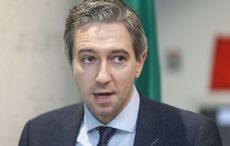Influential Irish commentator Eddie Hobbs has written in the Wall Street Journal that talk of a Celtic comeback is utterly exaggerated and Ireland is in worse shape than ever.
Hobbs made his views known after ‘Time’ Magazine featured Prime Minister Enda Kenny on its European cover and stated that he was leading an economic comeback little short of miraculous.
Hobs is credited with predicting Ireland’s crash, one of the few commentators to do so,
About the Celtic comeback he says “there are three huge problems with this myth.”
Those are he says:
• Irish taxpayers are still paying for the mistakes of Irish banks.
“The total plowed into banks is €64 billion, about 40% of Irish GDP but the EU leadership will not allow some of that debt to be restructured making it untenable...”
Hobbs’ second point is that:
• Irish household debt is still unsustainable. According to the IMF, household debt, which currently is as large as Ireland's national debt, will stand at 185% of disposable income in 2017. The Irish are expected to arrive at this level from a peak of 210% by saving 14% of their income, nearly half of which would have to be redirected into debt repayments. So a decade after the crisis began, Irish household debt will arrive at a level well above the starting point of other crisis economies.
One in five Irish mortgages is in arrears.
The third point he says is that:
• Irish labor costs—especially in the public sector—are still too high.
He says a “2010 deal with public-sector unions, signed amid a brutal period of layoffs and pay cuts in the private sector, goes farther still by fixing pay and pensions for government workers at extraordinarily high levels through 2014. “The agreement was named after Ireland's largest secular temple: Croke Park, headquarters of the Gaelic Athletic Association, where the deal was struck.
He says "Local Irish county managers are paid more than most European prime ministers. Brendan Howlin, the minister in charge of reforming the public sector, is himself a former teacher and trade union activist. The inner cabinet of the Irish government—which comprises the prime minister, the deputy PM, the minister for finance and the minister for public reform—brings the intellectual firepower of three secondary-school teachers and a trade unionist to bear on Ireland's crisis. All support the public-sector cartel.”
He concludes that “So while Time magazine and others eulogize the plucky leader of the Irish people, the truth is that Enda Kenny leads a Vichy government—captive externally to creditors that still insist on loading bank debt onto the sovereign, and internally to a tribe of insiders led by union godfathers in a deal that protects the government's own excessive pay and pensions while bankers lean over its shoulders to rewrite insolvency laws.
"This isn't just crony capitalism. It's crony democracy.”




Comments